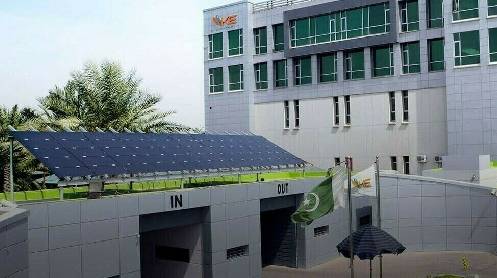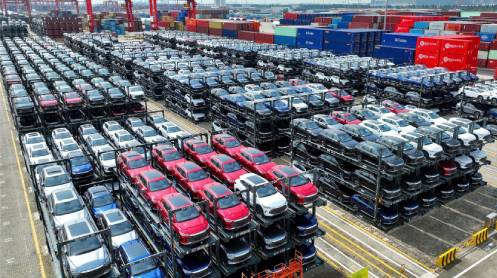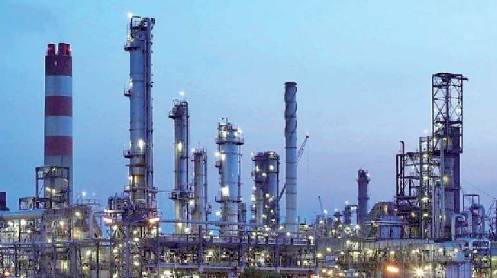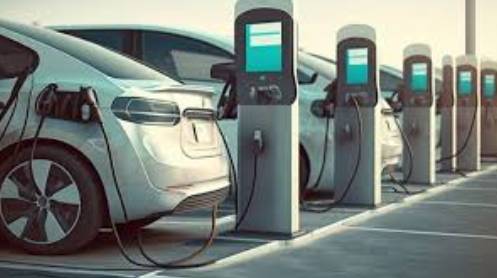ISLAMABAD: Power Division and K-Electric (KE) on Wednesday discussed different options for the latter’s participation in the second unit of Jamshoro coal power plant (2×600-MW), saying that the development of the project can be fast-tracked by structuring the transaction under G2G framework with Saudi Arabia. The meeting was attended by senior officials of Power Division, CPPA-G, NTDC and PPIB whereas KE’s also sent it senior management.
In a letter to Power Minister Khurram Dastgir Khan, CEO KE Syed Moonis Abdullah Alvi shared the outcome of meetings of the Prime Minister’s Task Force (PMTF) headed by former Prime Minister Shahid Khaqan Abbasi wherein it was decided that supply from National Grid to KE would be restricted to only 1,000-MW on a firm basis whereas supply over and above 1,000-MW would only be made available based on the demand and supply situation in National Grid and on pro-rata basis with other Discos.
Jamshoro coal-fired power plant unit: KE proposes three participation structures
The CEO said considering the GoP offer it has now become pivotal that the project is made available to KE at the earliest in order to cater to the ever rising power demand in the city of Karachi.
KE has appreciated the PMTF’S directives to the concerned agencies to fully assist and to expedite the evaluation and possibilities to this effect.
The letter states that several actions were taken pursuant to directive “issued by your Ministry on November 03, 2022, authorizing the formulation of a Technical Committee (TC) of relevant stakeholders in relation to the project.”
The TC had conducted two meetings – on December 28, 2022 and January 11, 2023 – whereby several aspects of the arrangement were deliberated to formulate the probable road map for creating a successful transaction structure.
Additionally, representatives of the TC conducted a project site visit on January 9, 2023. Subsequent to the site visit, it was agreed in the TC meeting held on January 11, 2023 that KE would prepare a Site Visit Report which would include the key technical, regulatory and commercial considerations that have been identified, along with a broad contour of the transaction structure under the applicable regulatory frameworks.
KE has initiated preparation of this Report, which will be submitted to the TC in due course. As per the report, KE highlighted the following key considerations, which are vital for the onwards development of the project: (i) Clarity of available financing for Unit-2: Considering that this is one of the most crucial elements of the transaction, KE has requested all concerned agencies of the Government of Pakistan (GoP) to retain interest of the existing sovereign funds, like the Saudi Fund for Development (SDF), and Kuwait Fund for Arab Economic Development (KFAED) for the development of Unit-2 in private mode.
KE believes that support from Ministry of Energy (MoE) and the other concerned ministries and departments of the GoP will be critical in securing the financing for the project, as KE, along with its own efforts, would also need continued support and facilitation from the GoP in this regard; (ii) separation of Common Facilities: Since both Units of the Project were designed to be operated as a combined facility, many common facilities were included in the project design.
To develop unit-2 in a distinct private structure, separation amongst the common facilities is critical from both technical and regulatory perspectives; (iii) Change of Design: Both units of the Project have been designed to utilize mix of imported and local coal (80% imported sub-bituminous coal and 20% local Thar lignite coal). As Unit-2 is now conceived on 100% local coal, critical design modifications will be required for development of Unit-2, based upon detailed studies; (iv) Lender’s Consent: Consent of Asian Development Bank (ADB) that is the existing lender of the project will be essential for the separation of Unit-1 and 2 of the projects; and (v) Scheme of Power Evacuation by KE: A detailed study will be required for this purpose to gain firm clarity on the most optimal scheme for power evacuation.







